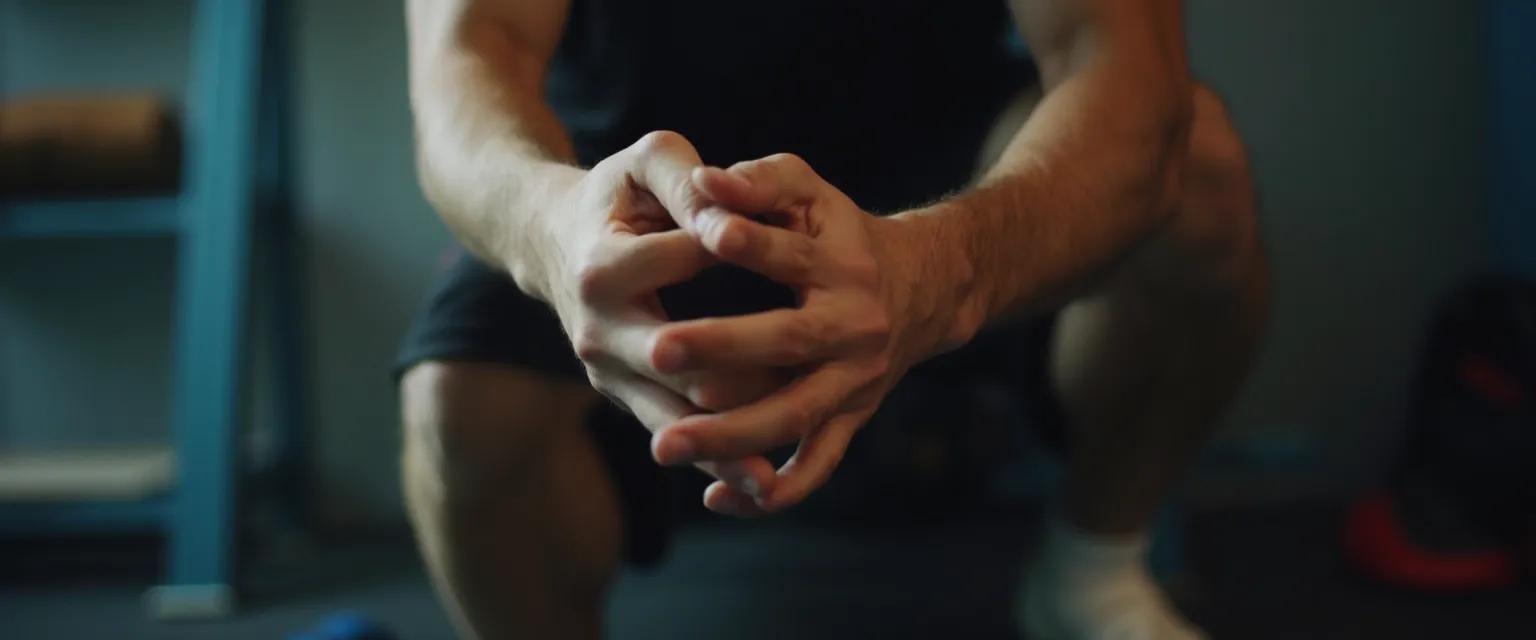Game-Day Jitters: Transforming Anxiety in Athletic Performance Into Power
That flutter in your stomach before the big game isn't your enemy—it's potentially your greatest ally. Anxiety in athletic performance is something every competitor experiences, from weekend warriors to Olympic champions. That racing heart, those sweaty palms, the scattered thoughts—they're all part of a natural response that can either derail your performance or propel you to new heights. The difference lies not in eliminating these sensations but in transforming them into competitive fuel.
Research consistently shows that top performers don't experience less anxiety in athletic performance; they simply have a different relationship with it. Rather than viewing pre-game jitters as a warning sign of impending failure, elite athletes interpret this arousal as their body preparing for peak performance. This mindset shift—seeing nervousness as performance-enhancing rather than performance-inhibiting—creates a powerful psychological advantage that can be your secret weapon on game day.
The science is clear: moderate levels of anxiety in athletic performance actually enhance focus and reaction time, sharpening your competitive edge when it matters most. Let's explore how you can harness this natural response to elevate your game.
The Science Behind Anxiety in Athletic Performance
When you experience anxiety in athletic performance, your body initiates what scientists call the "challenge state" rather than the "threat state." This distinction is crucial. In the challenge state, your cardiovascular system becomes more efficient, delivering oxygen and nutrients to working muscles more effectively. Your visual focus narrows, reaction times improve, and decision-making becomes more intuitive.
NBA star Stephen Curry describes his pre-game butterflies as "heightened awareness"—a sign his body is primed for optimal performance. Similarly, tennis champion Serena Williams has spoken about embracing the nervous energy before important matches, using it to sharpen her focus and intensity.
The physiological benefits of properly channeled anxiety in athletic performance include:
- Increased adrenaline that improves power output and explosiveness
- Enhanced cognitive vigilance that improves reaction time
- Elevated heart rate that ensures optimal blood flow to working muscles
- Heightened sensory perception that enhances environmental awareness
The key distinction between helpful and harmful anxiety in athletic performance lies in interpretation. When you perceive these physical sensations as helpful preparation rather than warning signals, you transform potential performance anxiety into a competitive advantage. This perspective shift doesn't happen automatically—it requires deliberate mental training and practical techniques.
Practical Techniques to Transform Anxiety in Athletic Performance
Olympic athletes regularly use "anxiety reframing" to convert nervous energy into focused power. Instead of thinking, "I'm nervous," they consciously reframe the sensation as, "I'm excited and my body is preparing for peak performance." This simple linguistic shift has profound effects on how anxiety in athletic performance manifests physically.
Controlled breathing techniques provide another powerful tool for managing pre-competition jitters. The 4-7-8 breathing pattern (inhale for 4 counts, hold for 7, exhale for 8) activates your parasympathetic nervous system, maintaining the benefits of arousal while preventing anxiety from becoming overwhelming.
Effective pre-competition routines that channel anxiety in athletic performance include:
- Visualization exercises that mentally rehearse success while acknowledging nervous energy
- Progressive muscle relaxation that maintains optimal tension levels
- Anchoring techniques that associate specific physical gestures with optimal performance states
When anxiety spikes during competition, quick reset strategies become essential. Many professional athletes use what sports psychologists call "centering"—a 3-second technique combining a deep breath, a specific physical movement, and a focused cue word to instantly recalibrate their anxiety in athletic performance to optimal levels.
These techniques aren't just theoretical—they're backed by extensive research on performance psychology and consistently implemented by elite competitors across all sports domains.
Mastering Your Athletic Performance Anxiety for Long-Term Success
Consistently transforming anxiety in athletic performance builds mental toughness over time. Each competition becomes an opportunity to strengthen your relationship with competitive arousal, gradually expanding your "optimal zone" of performance. This developed skill becomes a significant competitive advantage—while others fight against their nervous system, you're working in harmony with yours.
Start implementing these techniques before your next competition with these steps:
- Practice anxiety reframing during training sessions
- Develop a pre-competition routine that acknowledges and channels nervous energy
- Create a personalized "reset strategy" for mid-competition anxiety spikes
Remember that mastering anxiety in athletic performance isn't about eliminating nervousness—it's about transforming it into your competitive edge. The butterflies in your stomach aren't flying in formation yet, but with these science-backed techniques, you'll have them flying in formation soon, turning pre-game jitters into your secret performance-enhancing weapon.




